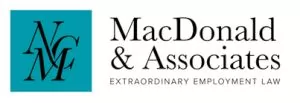The Elements of the Tort of Intentional Infliction of Mental Suffering:
The tort of intentional infliction of mental suffering ("IIMS") is not awarded often, and requires the Plaintiff to meet a very high threshold.
The elements required to establish IIMS were confirmed by the Ontario Court of Appeal in Boucher v Wal-Mart Canada Corp., 2014 ONCA 419 at para 41, and require the Plaintiff to prove that:
- The Defendant's conduct was flagrant and outrageous;
- The Defendant's conduct was calculated to harm the Plaintiff; and
- The Defendant's conduct caused the Plaintiff to suffer a visible and provable illness.
The first and third branches of the test are objective, but the second branch is subjective.
According to the Ontario Court of Appeal, to satisfy the second branch of the test it "must be shown that the defendant desired to produce the kind of harm that was suffered, or knew that it was substantially certain to follow... the extent of the harm need not be anticipated, but the kind of harm must have been intended or known to be substantially certain to follow." See Piresferreira v Ayotte, 2010 ONCA 384 at para 78.
The Court of Appeal was clear in Piresferreira that a reckless disregard for the harm that was caused does not satisfy the second branch of the test.
Who May Be Liable for the Tort of IIMS?
The tort of IIMS can be appropriately pleaded against an individual defendant personally, and vicariously against an employer for their employee's tortious conduct.
Liability of Individual Defendants in their Personal Capacity
The Ontario Court of Appeal's decisions in Piresferreira v Ayotte, 2010 ONCA 384, and Boucher v Wal-Mart Canada Corp., 2014 ONCA 419, are examples of where the analysis for the tort of IIMS was applied to the actions of the individual defendants in their personal capacity.
In Boucher v Wal-Mart Canada Corp., the Court found the individual defendant, Mr. Pinnock, personally liable for the tort of IIMS, and upheld the jury's award of $100,000 for this tort. In that case, Ms. Boucher was subjected to a campaign of persistent verbal abuse at the hand of Mr. Pinnock, in an effort to drive Ms. Boucher to quit.
In Piresferreira v Ayotte, 2010 ONCA 384, Mr. Ayotte, the Plaintiff's manager who had a history of aggressive behaviour and verbal abuse, yelled and swore at Ms. Piresferreira because she failed to schedule a client meeting. When Ms. Piresferreira tried to explain herself to Mr. Ayotte, he pushed her. Shortly after this exchange, Ms. Piresferreira received a negative Performance Improvement Plan.
The Ontario Court of Appeal upheld that personal liability for the tort of IIMS is possible; however, the Plaintiff failed to establish the desire to produce harm required by the second branch of the test for IIMS.
Employers' Vicarious Liability:
Vicarious liability is the legal doctrine that holds third parties legally liable for the actions of others. Employers can be held liable for the unauthorized or intentional wrongs of their employees.
In Bazley v Curry, [1999] 2 SCR 534, the Supreme Court of Canada outlined the following two part approach to determining whether vicarious liability should be imposed:
- Is there any precedents that impose vicarious liability in the circumstances presented in the case at issue;
- If the wrongful act can be sufficiently connected to the conduct authorized by the employer or principle to justify the imposition of vicarious liability.
The Courts have found employers vicariously liable for the tort of IIMS. In Boucher v Wal-Mart Canada Corp., the Court found that Wal-Mart was vicariously liable for the $100,000 tort award against Mr. Pinnock.
More recently, in Merrifield v Canada (Attorney General), 2017 ONSC 1333, the Court awarded $100,000 in general damages for the tort of intentional infliction of mental suffering as against the employer (the RCMP) and the two individual defendants.
Conclusion:
The tort of IIMS, while challenging to establish, has been successfully pleaded against both employees and employers. To date, the highest award for the tort of IIMS is $100,000 in both Boucher v Wal-Mart and Merrifield v Canada. Note that Merrifield v Canada, is currently under appeal.
Employers should be alert to the reality that they can be found vicariously liable for the unauthorized, intentional wrongful actions of their employees and must act on allegations of harassment and tortious conduct among their employees.
The content of this article is intended to provide a general guide to the subject matter. Specialist advice should be sought about your specific circumstances.

